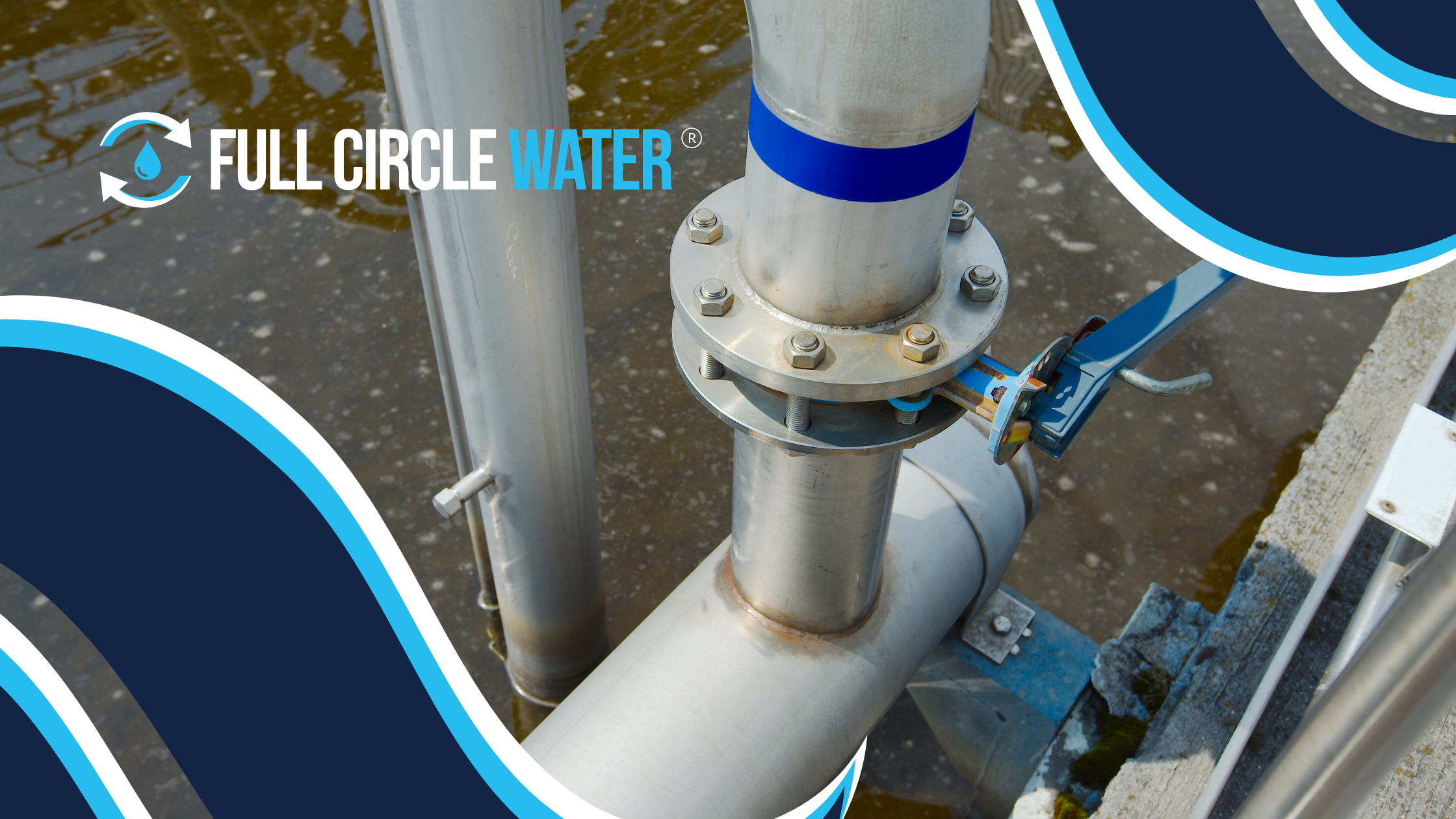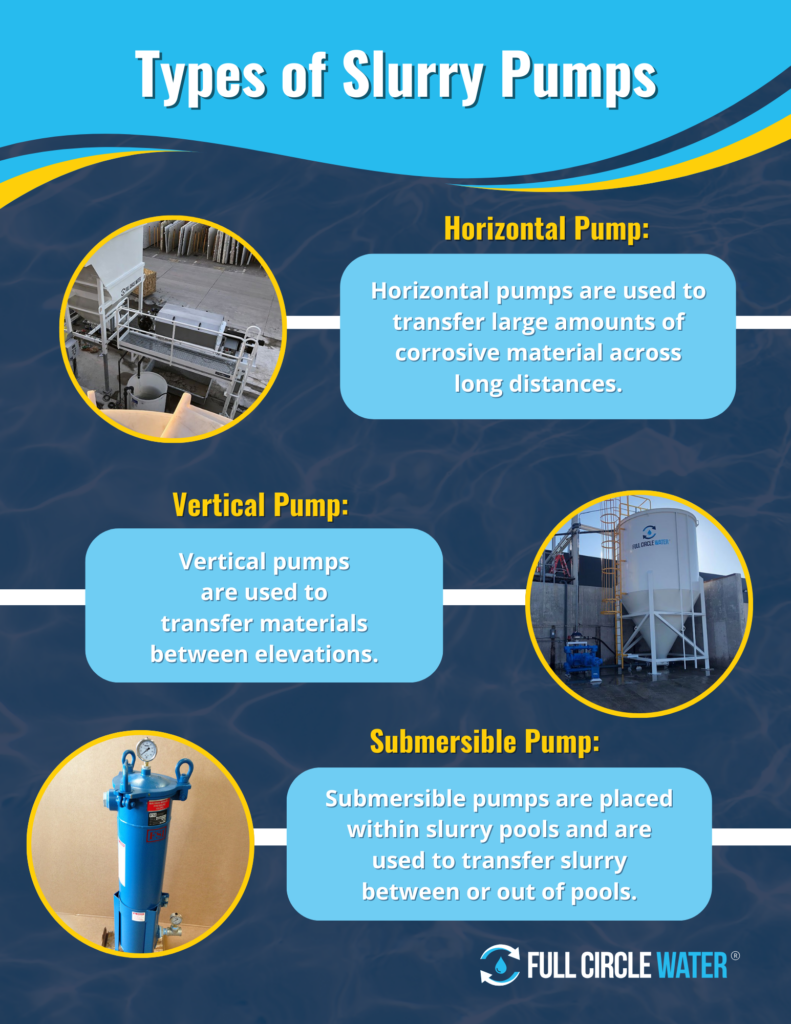
The slurry business is a complex industry filled with myriad physical, economic, and legal considerations. As a project manager, choosing a proven, American-made slurry system can go a long way towards preventing clogs and breakdowns, ensuring your system remains a profitable and resilient wastewater solution.
However, not every system is built to handle the same loads or manage slurry in the same way. Understanding the different slurry pump and filtration system options on the market will help you find the right system for your project.
Choosing a Slurry Pump
Slurry pumps come in various lengths, elevations, and materials. Be sure the pump you choose will perform at your specifications and can integrate well into your existing system.
Types of Slurry Pumps
Not all slurry pumps are used for the same purposes or at the same processing stages. The first thing to consider when browsing the pump market is what kind of pump you need—horizontal, vertical, or submersible.
Horizontal Pump
Horizontal slurry pumps move slurry parallel to the ground and handle highly abrasive or corrosive slurries with ease. Because they’re so durable, horizontal pumps are popular in heavy industry, including mining, metallurgy, and power generation.
Vertical Pump
Vertical pumps are used to transport materials to different elevations. Often (but not always), a vertical pump will be partially submerged in a slurry pool to transport its contents to different parts of the project site.
Submersible Pump
Submersible pumps are fully immersed in slurry. They are specially designed and built to handle the rigors of operating within a liquid, but they can degrade quickly, especially if your slurry is highly acidic.
Slurry Pump Materials
Consider what material you will be pumping. Some pumps are perfect for moving sand and mud, while others are more suited to processing sludge and other waste. Before making a purchase, ensure the pump’s material can handle the density, pH, viscosity, and temperature of the material you process.
Flow Rate
Different pumps process materials at different speeds, and the flow rate that’s best for your system will depend on what materials you process and during what stage of processing the pump will be used. For example, slurries that contain a lot of solids need to be pumped at a higher flow rate to prevent material from settling inside the pump and its connected hoses.
Discharge Head
Any slurry pump you choose needs to be able to exceed the discharge head of your entire discharge system; otherwise, the system will not operate at peak efficiency and may suffer abrasion.
Knowing the answer to these questions before you make a purchase will help you choose the best pump for your operation and avoid the costs associated with an inefficient or damaged slurry system.
Integrating Your Pump into a Wastewater Filtration System
After you’ve selected a pump, you can pair it with a new or existing filtration system to optimize your entire water treatment process. Full Circle Water offers many different water filtration systems, including industrial slurry silos, portable filtration plants, and rapid resettlement systems.
All-in-One Plants
All-in-One slurry silo filtration systems are turnkey solutions designed to provide efficient wastewater decanting regardless of the type of operation you run. Full Circle Water’s All-in-One system was designed based on feedback from over 600 stone fabricators and is among our smartest and most effective slurry silo plants.
Trailer Plants
Trailer filtration systems are designed to offer clean water on-the-go. Their compact, portable design makes them ideal for projects that need to set up or tear down quickly.
Rapid Settlement Systems
Wastewater decanting is one of the most important phases in any slurry management system. Rapid resettlement systems are designed to recycle up to 90 percent of wastewater and feed it back into production, ensuring your operation never has to wait for water again.
Find the Right Slurry System with Full Circle Water
Full Circle Water offers both turnkey and customizable slurry treatment systems. We seek innovative solutions and have a passion for helping our customers find the best systems for their industry.
Contact us today to get started.
